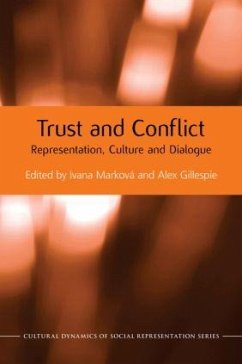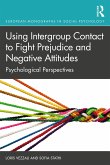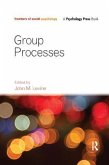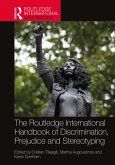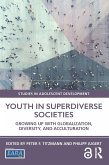Trust, distrust and conflict between social groups have existed throughout the history of humankind, although their forms have changed. Using three main concepts: culture, representation and dialogue, this book explores and re-thinks some of these changes in relation to concrete historical and contemporary events.
Part I offers a symbolic and historical analysis of trust and distrust while Parts II and III examine trust, distrust and conflict in specific events including the Cyprus conflict, Estonian collective memories, coping with HIV/AIDS in China, Swedish asylum seekers, the Cuban missile crisis and Stalinist confessions. With an impressive array of international contributors the chapters draw on a number of key concepts such as self and other, ingroup and outgroup, contact between groups, categorization, brinkmanship, knowledge, beliefs and myth.
Trust and Conflict offers a fresh perspective on the problems that arise from treating trust, distrust and conflict as simplified indicators. Instead, it proposes that human and social sciences can view these phenomena within the complex matrix of interacting perspectives and meta-perspectives that characterise the social world. As such it will be of interest to undergraduates, postgraduates and lecturers of human and social sciences especially social psychology, sociology, political science and communication studies.
Part I offers a symbolic and historical analysis of trust and distrust while Parts II and III examine trust, distrust and conflict in specific events including the Cyprus conflict, Estonian collective memories, coping with HIV/AIDS in China, Swedish asylum seekers, the Cuban missile crisis and Stalinist confessions. With an impressive array of international contributors the chapters draw on a number of key concepts such as self and other, ingroup and outgroup, contact between groups, categorization, brinkmanship, knowledge, beliefs and myth.
Trust and Conflict offers a fresh perspective on the problems that arise from treating trust, distrust and conflict as simplified indicators. Instead, it proposes that human and social sciences can view these phenomena within the complex matrix of interacting perspectives and meta-perspectives that characterise the social world. As such it will be of interest to undergraduates, postgraduates and lecturers of human and social sciences especially social psychology, sociology, political science and communication studies.
"Markova and Gillespie have delivered a highly original and cutting-edge exploration of trust and distrust as they play out in cultural contexts. Each chapter vividly brings these dynamics to life through a number of fascinating case studies, including the Cuban missile crisis, AIDS in China, the Russian-Georgian conflict and political confession in the Soviet Union. Trust and Conflict will be essential reading for anyone interested in the study of trust and intergroup conflict." - Brady Wagoner, Associate Professor of Psychology, University of Aalborg
"This book provides comprehensive coverage of the area of trust and conflict across cultures and draws on a variety of situations within and among groups in different settings. The Editors have a gifted style of writing, and have provided a valuable opening to the collection of papers which will prove to be a useful reading for scholars and graduate level students." - Nandita Chaudhary, Associate Professor, Lady Irwin College, University of Delhi
"This book provides comprehensive coverage of the area of trust and conflict across cultures and draws on a variety of situations within and among groups in different settings. The Editors have a gifted style of writing, and have provided a valuable opening to the collection of papers which will prove to be a useful reading for scholars and graduate level students." - Nandita Chaudhary, Associate Professor, Lady Irwin College, University of Delhi

